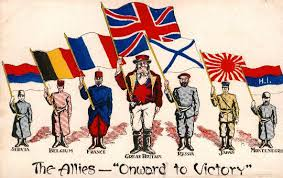Introduction
The Hundred Years’ War (1337–1453) was one of the longest and most transformative conflicts in European history. Fought between England and France, this war reshaped not only the political landscape but also had a profound impact on English society. But how did a war that lasted over a century affect the everyday lives of the English people? Let’s explore the social, economic, and cultural changes that emerged from this turbulent period.
The Rise of English National Identity

Before the war, England was deeply intertwined with France, both politically and linguistically. However, the prolonged conflict fostered a sense of English nationalism. The war created a distinct identity, separate from French influence, and strengthened loyalty to the English crown.
The Decline of French Influence
Prior to the war, the English aristocracy commonly spoke French, and much of England’s elite identified with their Norman ancestry. However, as France became the enemy, the use of the English language grew in importance, replacing French in legal and governmental affairs.
The Evolution of the English Language
During this period, English began to emerge as the dominant language. The 1362 Statute of Pleading mandated the use of English in courts, marking a major shift away from French. By the end of the war, English was the primary language of the ruling class and common people alike.
Social and Economic Transformations
The Decline of Feudalism
The war significantly weakened the feudal system. Many nobles died in battle, while others lost their wealth due to the high costs of warfare. This decline in noble power allowed for the growth of a more centralized monarchy and a shift toward a more modern societal structure.
The Growth of a Professional Army
Before the war, England relied on feudal levies landed nobles who brought their own soldiers. However, the long duration of the conflict led to the rise of professional armies. Soldiers became a distinct class, leading to increased military spending and taxation.
The Burden of War Taxes
Funding a war that lasted over a century required heavy taxation. The English crown imposed numerous taxes on commoners, causing widespread resentment. Although unpopular, these taxes contributed to the gradual development of a more structured and centralized financial system.
The Impact on Agriculture and Rural Life
Destruction of Farmlands
Although most battles took place in France, the economic strain of the war severely impacted English agriculture. Many farmers were conscripted into the army, leaving fields untended. Additionally, the Black Death (1347–1351), which overlapped with the early years of the war, further devastated the rural workforce.
Changes in Land Ownership
The deaths of many nobles led to shifts in land ownership, allowing successful peasants and emerging gentry to acquire land. This redistribution of wealth helped shape England’s evolving class structure.
The War’s Influence on English Governance
Strengthening of Parliament
The necessity of raising funds for the war increased Parliament’s power. Kings had to seek parliamentary approval for taxation, which strengthened its role in governance. This shift laid the foundation for England’s constitutional monarchy.
The Emergence of Common Law
With the decline of feudalism, legal reforms became necessary. The war facilitated the spread of common law, reducing the influence of local feudal courts and centralizing legal authority under the king.
The Rise of the Yeoman Class
Increased Opportunities for the Lower Classes
As feudal lords lost power, the common people gained more opportunities. Yeomen freeholders who owned and worked their land became a crucial part of English society. Many former soldiers used their earnings from war to purchase land and improve their social standing.
The Changing Role of Knights
With the decline of chivalric warfare and the rise of professional armies, traditional knights became less relevant. Instead, the importance of skilled archers, particularly the longbowmen, grew significantly.
The Psychological and Cultural Impact of the War
War Fatigue and Social Unrest
A century of near-constant conflict exhausted the English population. Many people grew disillusioned with the war, especially as victories turned to defeats in the later years. This dissatisfaction led to domestic unrest, including the Peasants’ Revolt of 1381.
Literature and Art Reflecting the War
The Hundred Years’ War inspired significant changes in literature and art. Works such as Geoffrey Chaucer’s Canterbury Tales reflected the evolving social order, highlighting themes of class struggle and national identity.
The End of the War and Its Aftermath
The Loss of French Territories
By the war’s end in 1453, England had lost nearly all its French territories, retaining only Calais. This forced England to turn inward, focusing on internal affairs rather than continental expansion.
The Seeds of the Wars of the Roses
The war left England politically unstable. Returning soldiers, economic strain, and weakened noble families set the stage for the Wars of the Roses (1455–1487), a series of civil conflicts that further shaped English history.
Conclusion
The Hundred Years’ War was more than just a conflict between England and France it was a catalyst for profound social change. From the rise of national identity to the decline of feudalism, its effects rippled across English society for centuries. While England ultimately lost its claim to the French throne, it gained something arguably more valuable: a clearer sense of itself as a distinct and independent nation.
FAQs
1. How did the Hundred Years’ War affect the English economy?
The war drained England’s resources through heavy taxation and military spending. However, it also led to economic shifts, such as the decline of feudalism and the rise of a market-based economy.
2. What role did the longbow play in the war?
The English longbow was a game-changer, allowing English forces to defeat larger French armies in battles like Agincourt. It contributed to the decline of knights and chivalric warfare.
3. How did the war contribute to the rise of the English language?
The war diminished French influence in England, leading to the widespread use of English in government, law, and daily life. This shift helped establish English as the dominant language of the nation.
4. Did the war impact women in England?
Yes, with many men away at war, women took on greater responsibilities in agriculture, business, and local governance. This period saw a gradual shift in gender roles.
5. What were the long-term consequences of the war?
The war strengthened the English Parliament, contributed to the decline of feudalism, and led to the Wars of the Roses. It also helped shape England’s national identity and governance structure for centuries to come.


